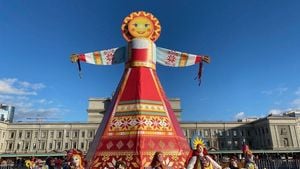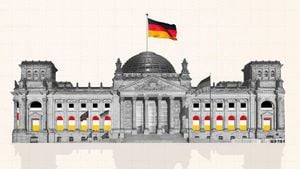The holy month of Ramadan, observed by millions of Muslims around the world, is set to begin at sunset on February 28, 2025. This significant month will last until March 30, culminating in the joyful celebration of Eid al-Fitr, or Urazа-Bayram, on the following day.
Ramadan is the ninth month of the Islamic lunar calendar and holds deep religious relevance as it commemorates the period when the angel Gabriel began to reveal the Quran to the Prophet Muhammad. For Muslims, this month marks not only fasting but also increased spirituality, reflection, and community involvement.
During Ramadan, the fast begins each day just before dawn, known as Suhoor, and ends at sunset with Iftar—a meal traditionally started with dates and water. Mohammad Said, an Islamic scholar, explains, “Fasting during Ramadan is one of the Five Pillars of Islam, alongside prayer, belief, charity, and pilgrimage to Mecca.” This foundational act signifies self-discipline, self-restraint, and charity.
The days during Ramadan are spent fasting from food and drink, alongside striving for good behavior. Muslims are expected to refrain from negative actions such as gossiping or anger, embodying the essence of purification and growth during this month. The fast not only emphasizes abstaining from food and drink but also encourages community connection through shared meals and charitable acts.
One of the key elements of Ramadan is the nightly prayers known as Taraweeh. After the obligatory evening prayers, many Muslims participate in these extended prayers at mosques or at home, gathering for community worship and support. "Muslims are encouraged to read the entire Quran during Ramadan to deepen their religious knowledge," shares Fatimah Valizadeh, another practitioner of the faith.
Food choices during Suhoor and Iftar are particularly important, as they help sustain individuals throughout the day of fasting. It is advised to consume slow-releasing carbohydrates, fruits, and proteins to maintain energy levels until sunset. Traditional Iftar meals often feature dates, water, and other nourishing foods—a symbol of sharing and communal gratitude.
On the night of Laylat al-Qadr, known as the Night of Decree, which is believed to occur within the last ten days of Ramadan, the rewards for worship are said to multiply immensely. This night marks the occasion when the Quran was first revealed and is considered the holiest night. Muslims seek to spend this night in prayer, supplication, and reflection.
While the essence of Ramadan is deeply rooted within the individual’s experience, it also binds the community through shared practices and rituals aimed at fostering togetherness and compassion among family and friends. The days of Ramadan echo teachings of charity, as many Muslims increase their contributions to the less fortunate. The zakat al-fitr, or charity due at the end of Ramadan, is especially highlighted as it ensures all individuals, regardless of their circumstances, can participate and celebrate Eid al-Fitr.
One of the most significant aspects of Ramadan is the focus on collective goodwill. Not only does it serve to enrich one’s spirituality, but it also emphasizes the obligation to support those less fortunate, underlining the importance of community spirit inscribed within the Quran.
Ramadan is not merely about abstaining from food and drink; it is seen as a period of self-care, introspection, and dedication to Allah. Scholars often reflect on the capacity for hardship and weakness to forge resilience and belief. Mohammad emphasized, “Each day of sincere fasting for the sake of Allah distances the believer from hell by seventy years.”
All these factors combined make Ramadan a deeply reflective month for Muslims around the globe, offering tools for personal growth and community building as they celebrate the heart of their faith.



